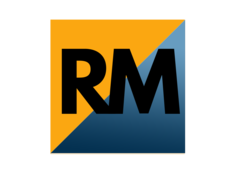
Of course there’s the option to alter the density of the workpiece before being fed into the extrusion machine, simply by regulating its temperature. Heat excites the molecular composition of the workpiece, consequently increasing its fluidity. Some manufacturers, however, veer away from this option because chemical change through heating may have irreversible effect on the work piece’s original properties, resulting in poor-quality output.
Among the copper-based workpieces manufacturers use, brass is arguably the easiest to extrude. Manufacturers choose this metal over most other copper alloys is that it can be easily extruded even at room temperature.
Brass Extrusions
All alloys that consist of copper and zinc are classified as brass. High-quality brasses usually have around 70 percent copper and 30 percent zinc. Sometimes, other elements, such as arsenic, lead, phosphorus, aluminum, manganese, and silicon are added to the mixture to produce variants that suit more specific applications.
Brass is one of the most workable metals available, which is probably why it is a preferred material for extrusion. On another note, most of the products that require extrusion due to their intricate design are best made of brass. Simply put, while extrusion is not exclusive for brass, it clearly works well than other metalworking techniques when brass is the base metal.
Applications
Brass has some properties that are not found in any other metal. One of these is its excellent reaction to friction. When rubbed against other metals, brass does not easily produce heat or spark, making it the perfect material for application where low friction is necessary, including locks, gears, bearings, doorknobs, ammunition casings, and valves. For the same reason, it is also an ideal material for making select components of plumbing and electrical systems where immense pressure is often involved.
Brass extrusions are in high demand in various industries, particularly in architecture and construction. Because of this, brass extrusions suppliers never run out of orders regardless of the season and market condition. Apart from doorknobs and locks, brass can also be extruded to make handrails, columns, skirting, and cornices. Some furniture with intricate cross-sectional features can be made from brass extrusions as well.
Other Benefits of Extrusion
Although extrusions are usually appreciated for the natural properties that their base material possesses, some of those appreciable features may not be achievable with metalworking techniques other than extrusion. Unlike cast, forged, or drawn metals, extrusions have the following characteristics:
- Corrosion resistance the surpasses that of regular cast metals
- High strength due to increased density through compression
- Better hot or cold workability than cast metals
- Lasting sheen and improved machinability
- Suitability for intricate shapes and configurations
- High electrical conductivity
Extrusion also proves more efficient than casting in terms of production, considering that its process consists of fewer steps. This is why most manufacturers choose this technique for mass production, although they prefer casting for custom work.
If you are interested in using brass extrusions for your project, make sure that you will get your materials from a certified copper product supplier, such as Rotax Metals. Don’t hesitate to ask them “what’s the price of brass” in case you are not familiar with the different grades available in their store.

